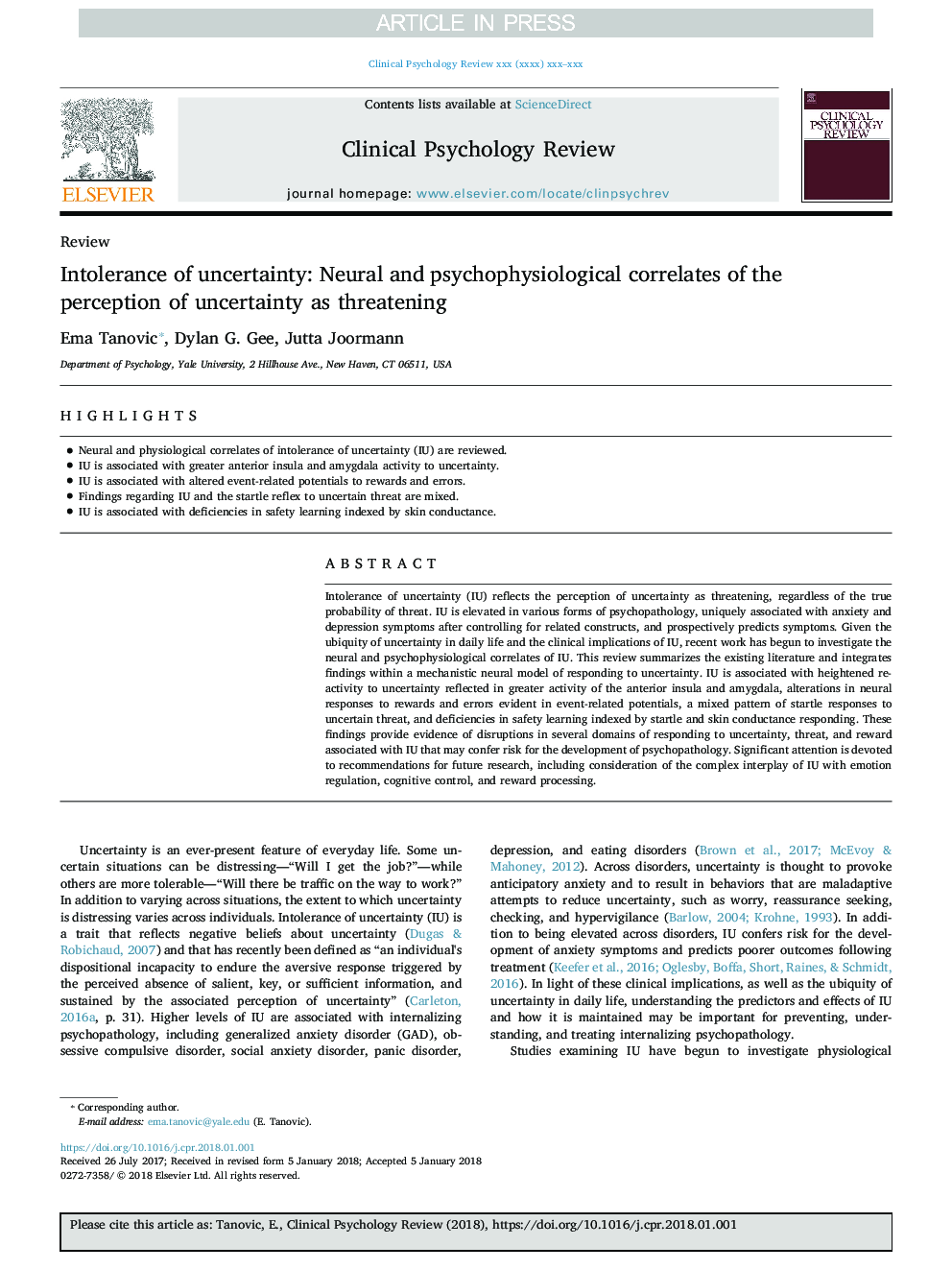| Article ID | Journal | Published Year | Pages | File Type |
|---|---|---|---|---|
| 7263457 | Clinical Psychology Review | 2018 | 13 Pages |
Abstract
Intolerance of uncertainty (IU) reflects the perception of uncertainty as threatening, regardless of the true probability of threat. IU is elevated in various forms of psychopathology, uniquely associated with anxiety and depression symptoms after controlling for related constructs, and prospectively predicts symptoms. Given the ubiquity of uncertainty in daily life and the clinical implications of IU, recent work has begun to investigate the neural and psychophysiological correlates of IU. This review summarizes the existing literature and integrates findings within a mechanistic neural model of responding to uncertainty. IU is associated with heightened reactivity to uncertainty reflected in greater activity of the anterior insula and amygdala, alterations in neural responses to rewards and errors evident in event-related potentials, a mixed pattern of startle responses to uncertain threat, and deficiencies in safety learning indexed by startle and skin conductance responding. These findings provide evidence of disruptions in several domains of responding to uncertainty, threat, and reward associated with IU that may confer risk for the development of psychopathology. Significant attention is devoted to recommendations for future research, including consideration of the complex interplay of IU with emotion regulation, cognitive control, and reward processing.
Related Topics
Health Sciences
Medicine and Dentistry
Psychiatry and Mental Health
Authors
Ema Tanovic, Dylan G. Gee, Jutta Joormann,
